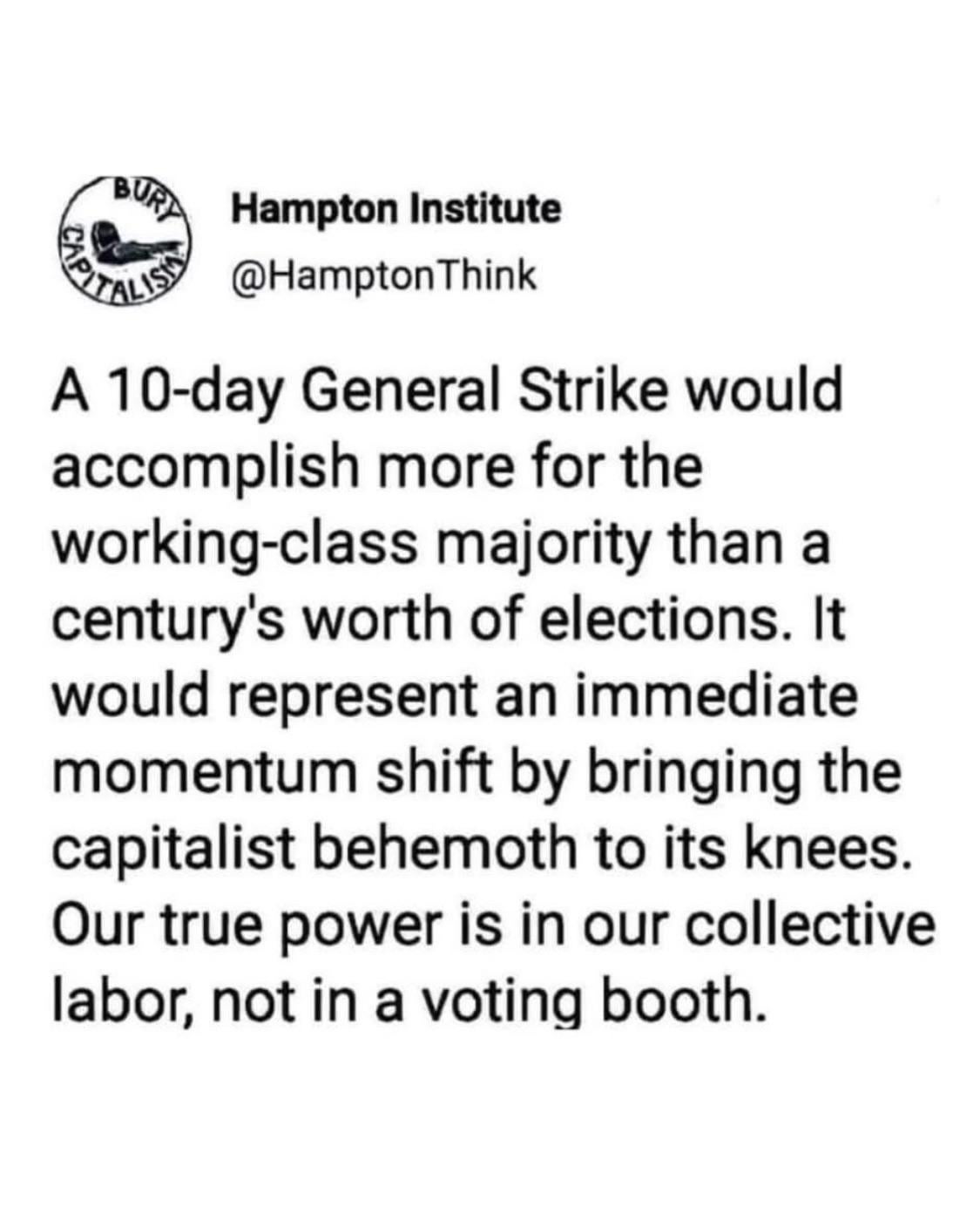In a cross-posted thread, I've seen plenty people mentioning that others don't even go voting. I think this is a bit defeatist; at least here in Brazil, most non-voters say stuff like "voting is pointless, it doesn't change anything". This means that they could potentially join a strike, if they were certain that it would improve things for them.
It's probably the same in other countries.
A few points on increasing odds of success:
- Never say how long the strike should last. The uncertainty makes it feel worse for your opponents; doubly so for corporations (as they hate unnecessary risks, and the strike going on for a long time is a risk for them).
- Have a concise list of clear demands. At least some of them should be obviously advantageous to the strikers, even the non-politicised ones.
- Some politicisation of the strikers is good. Just keep in mind that most don't want to hear about theoretical stuff. (Do explain the theoretical stuff to the willing ones though.)
- If you want 100, ask for 200. Let the other side negotiate it down back to 100. (They'd still do it if you asked for 100 - except that they'd negotiate it to 50.)
- Watch out for false flags stirring trouble. They'll do shit like throw stones at residential windows (to get non-strikers pissed at you, and justify the cops [ACAB] pepper spraying you.) And in general keep good discipline among strikers, always reminding them why, how, who, and against whom you all are striking.
- Also watch out for groups trying to co-opt the strike into "their" strike. They should feel welcome to join, but they should not seize control over the whole.
- Uni students are specially eager to join. Don't ignore them.
Source: mostly personal experience. I'm nowadays disengaged, but a decade or so ago I was in a socialist party, and joined quite a few strikes.
